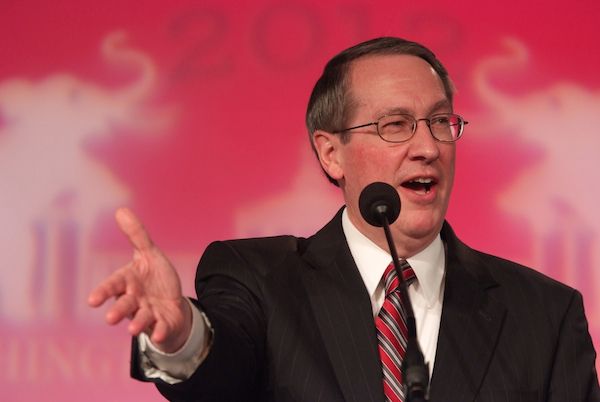SOPA Sponsor Claims Consumer Privacy Protection in New Law


An update to the Video Privacy Protection Act, instated in 1988, will allow Netflix subscribers in the U.S. to automatically share account activity on social networking sites like Facebook and Twitter. Netflix has pushed for the legislation, which they say will lead to an increase in business; such social sharing has proved beneficial in other places throughout the world.
The original VPPA was meant to protect viewers’ privacy, but in the age of the Internet has become outdated. Since users can now consent to release rental data via the application, there is no reason to broadly restrict it. Steve Swasey, Netflix’s Vice President of Corporate Communication, told tech blog Venture Beat in an interview that the Facebook features are available in 44 of the 45 countries Netflix is available – the U.S. is the last one standing.
The co-chairs of Future of Privacy, a think tank dedicated to “advance responsible date practices,” wrote an op-ed in 2011 supporting updates to VPPA. The authors, Jules Polenetsky and Christopher Wolf, cite the economic benefits to companies and the consumption benefits to users outweigh incidents of “accidental” sharing. The think tank is supported entirely by national and international corporations, including Netflix. Microsoft, Bank of America, Wal-Mart, and Visa are also among the long list.
Polenetsky, who previously worked as AOL’s Chief Privacy Officer, also serves on the advisory board to the Center of Copyright Information. CCI is a coalition of companies and individuals from the movie and music industry that actively seeks to prevent copyright infringement by consumers. Their Copyright Alert System allows content owners to alert Internet service providers when they believe a user is violating copyright laws.
Movie and music associations of America, MPAA and RIAA, teamed up with Comcast, Verizon, AT&T, Time Warner Cable, and Cablevision, which reach around 75% of consumers in the US according to Torrent Freak, created the group and agreed to terms in which ISPs will continually track copyright violators and provide information directly back to content owners. The initiative knows as Six Strikes and to be implemented in 2013, is essentially a work around to the controversial SOPA and PIPA acts. Public opposition to those bills because of concerns for consumer privacy caused their death on Capitol Hill.
The bill requires consumers to consent to sharing their information and requires companies like Netflix to always offer a “clear and conspicuous” option to withdraw that consent at anytime. Additionally, the consent will automatically expire after two years, at which point the customer will need to re-consent to the terms.
Rep. Bob Goodlatte (R-VA), who introduced SOPA and sponsored the update to the VPPA, emphasized the following during his speech on the House floor:
“Protecting private information is critically important in today’s online world. This bipartisan bill is truly pro-consumer and places the decision of whether or not to share video rentals with one's friends squarely in the hands of the consumer.”
A revisit to the VPPA is genuinely warranted, but whether those parties involved in promoting it really have consumer privacy in mind will only be proven once the hasty changes in legislation and practice are in play with users. 2013 should be an interesting year to track the increased government involvement in cyberspace.



